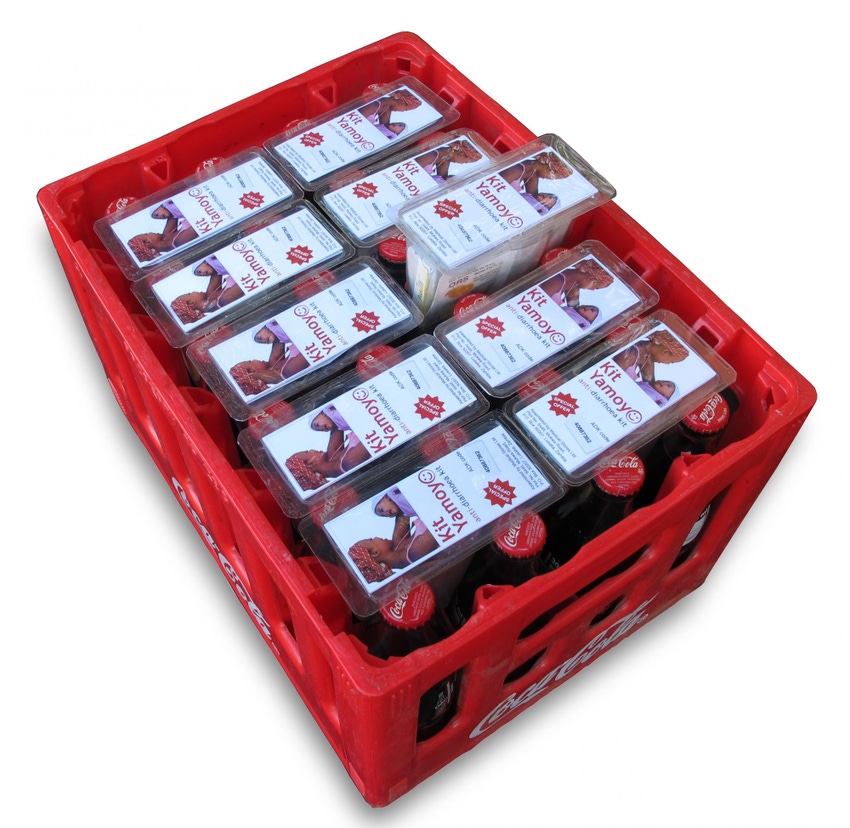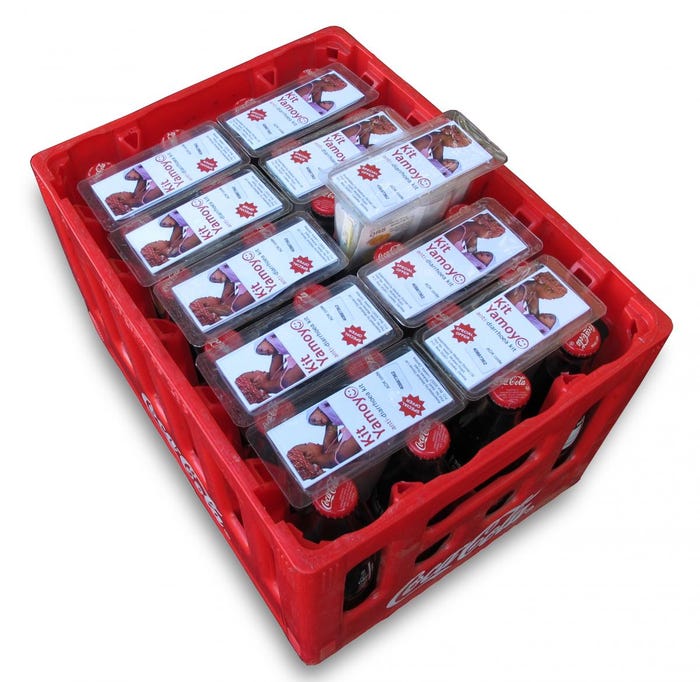Coca-Cola is arguably one of the most ubiquitous manmade substances on the planet.A British aid worker in sub-Saharan Africa had the ingenious insight that medicines vital to the health of young children could be piggybacked on to the Coca-Cola distribution network.
June 3, 2013

Coca-Cola is arguably one of the most ubiquitous manmade substances on the planet.
A British aid worker in sub-Saharan Africa had the ingenious insight that medicines vital to the health of young children could be piggybacked on to the Coca-Cola distribution network.
"The idea that Coca-Cola gets everywhere but essential medicines don't and that these medicines could hitch
|
a ride in Coca-Cola crates is a very powerful one," says Simon Berry, who is a former British Aid worker in northern Zambia. "I was struck by the fact that I could get a Coca virtually anywhere--a cold CocaCola--yet at the same time one in seven children did not reach their fifth birthday, often because of dehydration."
A lot of things have had to happen to arrive at the eventual development of a product called an AidPod containing oral rehydration salts and zinc supplements that fits neatly into a Coca-Cola shipping container.
One requirement was a cleverly designed plastics package.
"A cardboard box would not work in our case," says Berry. Plastics provide required barrier properties, very light weight, as well as the opportunity to create unique design features, including a built-in water cup with measurements. Initial research showed that mothers did not mix and measure the medications properly with the simple cardboard prototype, which also could not fit into the crevices in between bottles of soda. Cardboard also could not provide adequate protection from the jostling of crates moving around on trucks on rural African dirt roads.
A British design company called pi Global offered its help.
The company designed a patented wedge shape vacuum formed container made of 80% recycled PET polyester, the same plastic used as virgin material in soda bottles. Other partners joined the effort. Charpack makes the container and lid; Amcor Flexibles produces P-Plus perforated peelable film to seal the pack closed; and Packaging Automation makes the machinery that heat seals the film to the AidPod.
The packaging can withstand extreme conditions during distribution, including rapid temperature changes, rough handling and altitude changes, while maintaining a hygienically sealed pack. Amcor says that its P-Plus technology dissipates sudden pressure changes to avoid bursting the pack. It's a coextruded film laminate made with polyethylene and oriented polypropylene.
The AidPod, however, is more than just transit packaging.
The lid is transparent, meaning that it could potentially be used for SODIS solar water disinfection--another tool in the fight against diarrhea in sub-Saharan Africa. In the SODIS concept, contaminated water is filled in a transparent PET-bottle and exposed to the sun for six hours. UV-radiation kills pathogens.
The lid also prevents contamination during mixing and allows the medicine to be shaken and fully dissolved. The lid is then used as a drinking cup.
Another goal of the plastic packaging is to make the AidPod look like an attractive consumer product.
The plastics may be the easy part of the project. Simon Berry and his wife Jane are developing the AidPod through a nonprofit called ColaLife and are now learning the intricacies of the distribution value chain for products such as Coca-Cola. It's not Coca-Cola that gets the product to that rural store--it's wholesalers and retailers along the way. Various groups are providing subsidies to move the project from trial to reality.
The plan is to use the Aid Pod initially for anti-diarrhea medications, and then to provide other medicines.
The design has won several awards, including most recently a DuPont packaging award.
You May Also Like



